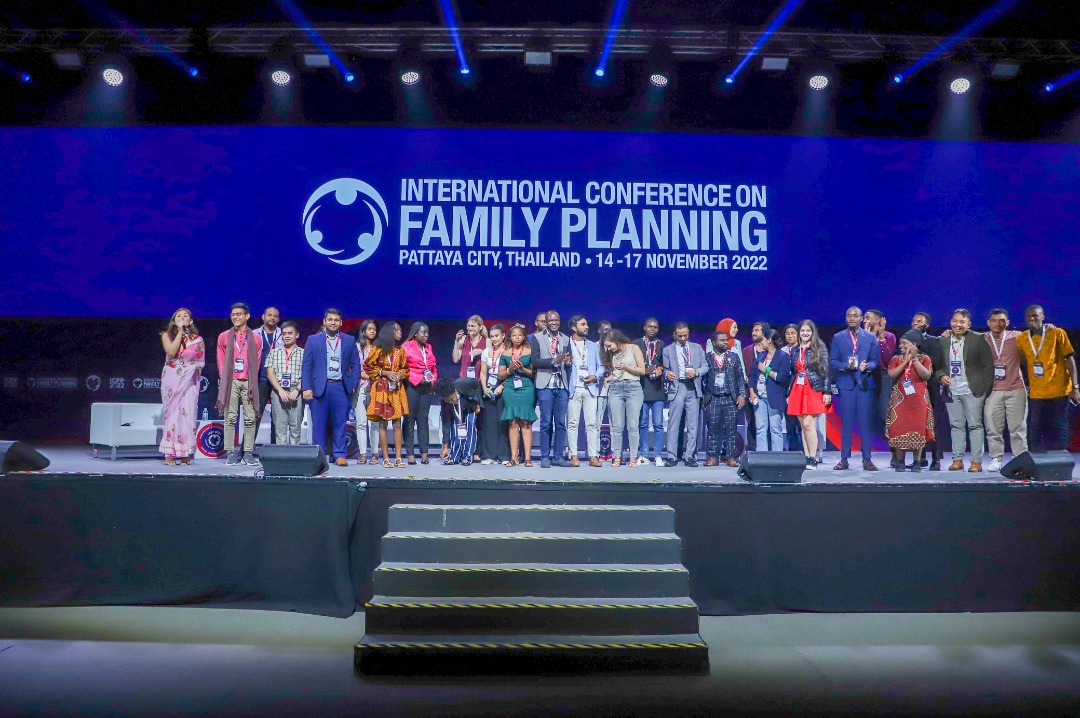The recent International Conference on Family Planning (ICFP) saw Thailand host up to 3,500 reproductive health and family planning experts and advocates in Pattaya City, Thailand. The country reduced their total fertility rate from 6.15 to 1.5 between 1960 and 2020. They therefore had significant learnings to share on the ways they were able to improve access to family planning services.
The conference also provided an opportunity for delegates to share best practices from working in their respective countries, reconnecting with peers, and learning key lessons to improve their work. Governments and partners restated their commitments to improving reproductive healthcare in their respective countries.
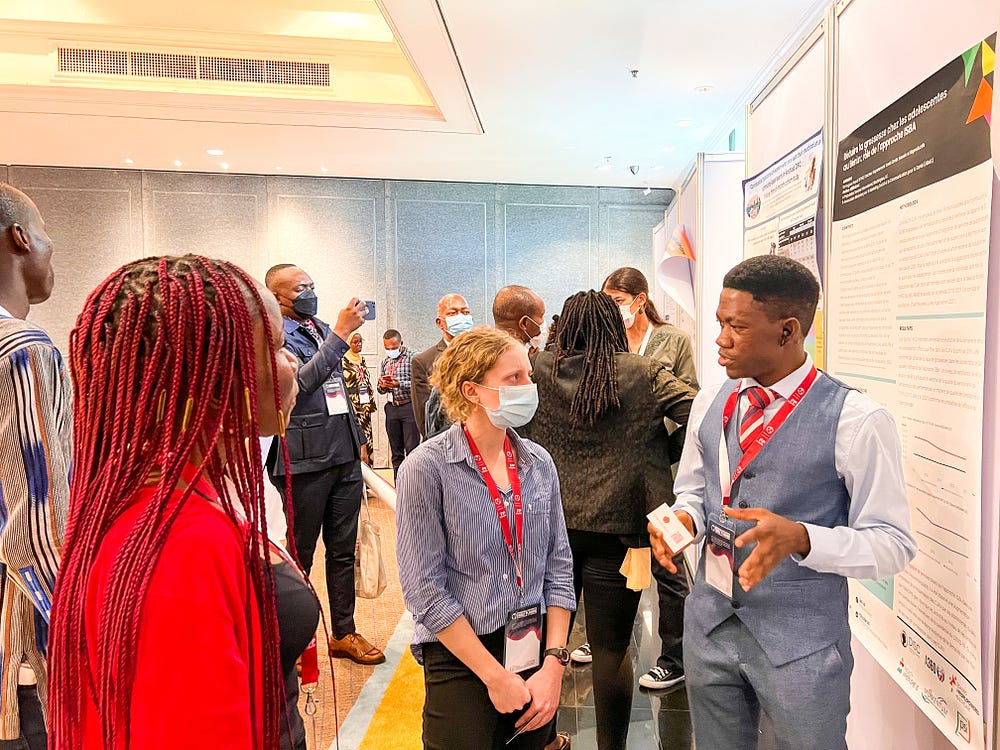
Over 100 delegates from Nigeria were in attendance. They shared lessons from Nigeria’s public and private sector, youth and civil society-led interventions with other delegates. In his presentation, Emeka Okafor, Project Director for IntegratE project shared lessons from private sector efforts, led by the Pharmacists Council of Nigeria (PCN) to improve access and uptake of family planning services. IntegratE employed a 3-tier accreditation system that aimed to scale up basic health care services, especially in rural communities in line with the current task-shifting task-sharing policy. Community Pharmacists (CPs) and Patent and Proprietary Medicine Vendors (PPMVs) were provided training by PCN , building their capacity to provide a wider range of family planning (FP) and primary health care (PHC) services.

At the Youth Pre-Conference side-session, Mercy Bolaji, Programme Coordinator at Stand with a Girl Initiative, shared insights from an intervention that is raising youth champions and advocates by teaching them to interpret data through storytelling. In his presentation, Dr. Ezechukwu Ikenna, Programme Coordinator at Society for Family Health shared learnings from their intervention that leveraged technology to reimagine capacity building for family planning service providers.
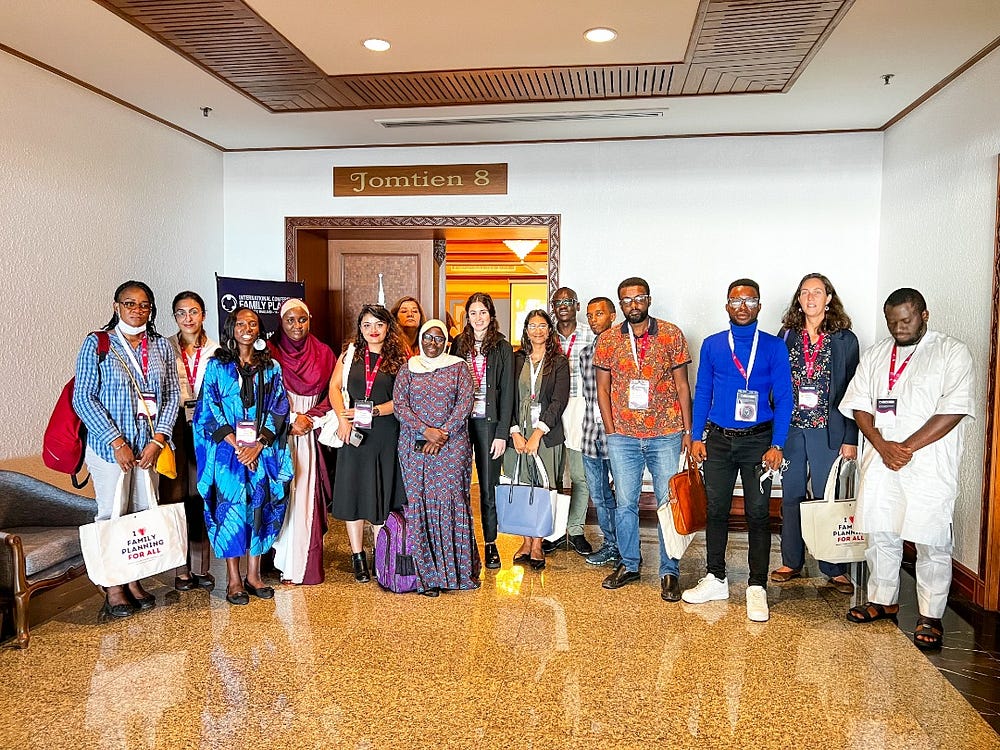
UHC minus FP equals No UHC
“Investments in Universal Health Coverage (UHC) without Family Planning is incomplete,” Jose G. Rimon, Director of the Bill & Melinda Gates Institute for Population and Reproductive Heath told delegates at the conference opening. This couldn’t be captured better as UHC seeks to ensure everyone has access to the essential health services they need, when and where they need them, and without financial hardship.
Across health systems, insufficient investments in primary healthcare continues to impact the vision of ensuring that everyone who needs health services can access them, regardless of how much they have or who they are. However, investing in integrated family planning service delivery mechanisms that ensures women and girls can access services when they need them, irrespective of where they live has a knock-on effect on the drive towards UHC, Amy Boldosser-Boesch, a Senior Director at Management Sciences for Health, said.
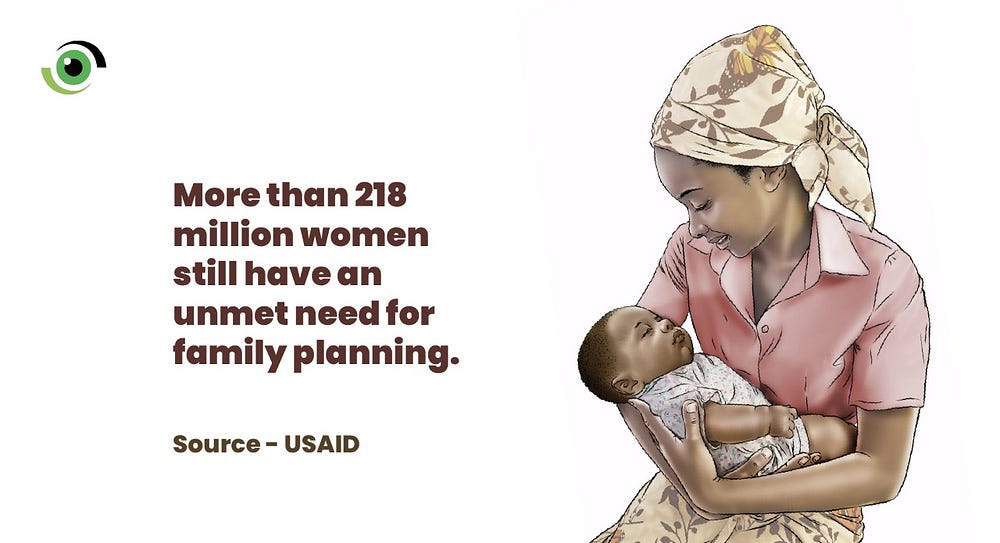
COVID-19 disruptions in family planning services
Important themes and discussions throughout the conference showed that more than ever, it is time for countries to start taking responsibility and ensuring there is improved access to family planning and other reproductive health services for women and girls. This is especially critical considering that the COVID-19 pandemic impacted access to reproductive health services.
As a result of COVID-19 related disruptions, over 12 million women and girls lost access to family planning services, leading to 1.4 million unintended pregnancies. With the increased vulnerability of adolescents and people from low-income households comes the need for equitable health services, including family planning services, that will enable them to achieve their reproductive health rights.

However, while the pandemic led to the loss in the progress made around reproductive health, Dr Atul Gawande, Assistant Administrator of Global Health, the United States Agency for International Development (USAID), prescribed three things that can facilitate recovery;
(1) The need to focus on strengthening local capacities, priorities and voices
(2) To embrace young people as key drivers of change and equal partners
(3) Embracing gender transformative approaches that engage communities, including boys and men in order to tackle the root causes of gender inequality.
However, there must be strong commitment and intentionality to take sustainable actions that will drive this process.
“Commitments are deliberate efforts to address issues” — Dr Simukeliso Dube
A mental shift from an external funding model for family planning services to local financing took centre stage at the conference. Especially as the implications of the Roe vs. Wade ruling in the United States continues to impact access to reproductive health services for women and girls.
Clearly, there are significant returns when investments in family planning are made. Every $1 invested in meeting the unmet need for contraceptives in low-and middle-income countries (LMIC) yields US $120 in benefits in long-term economic growth and reduced infant and maternal death. In addition, every dollar spent on providing contraceptive services beyond current levels would save $3.70 in the cost of maternal, newborn and abortion care, because the use of contraceptives reduces the number of unintended pregnancies.
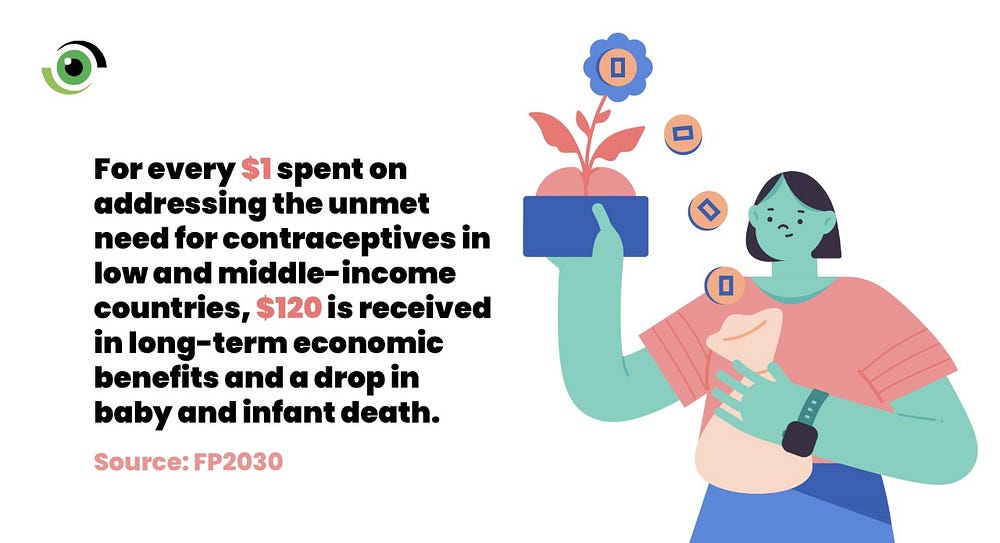
Again, it takes deliberate effort to make and keep the commitments needed to tackle these issues, Dr Simukeliso Dube, Executive Director, FP2030, said during a plenary session.
At the conference, Nigeria’s Minister of Health, Dr Osagie Ehanire joined other countries to renew commitments to increase investments in sustainable financing for family planning. Signing the compact agreement with the United Nations Population Fund (UNFPA), Dr Ehanire said he had the backing of the Federal Executive Council as he only formalised what they had approved. He added that better messaging, advocacy and community engagement can help get even more investment than what has been committed.
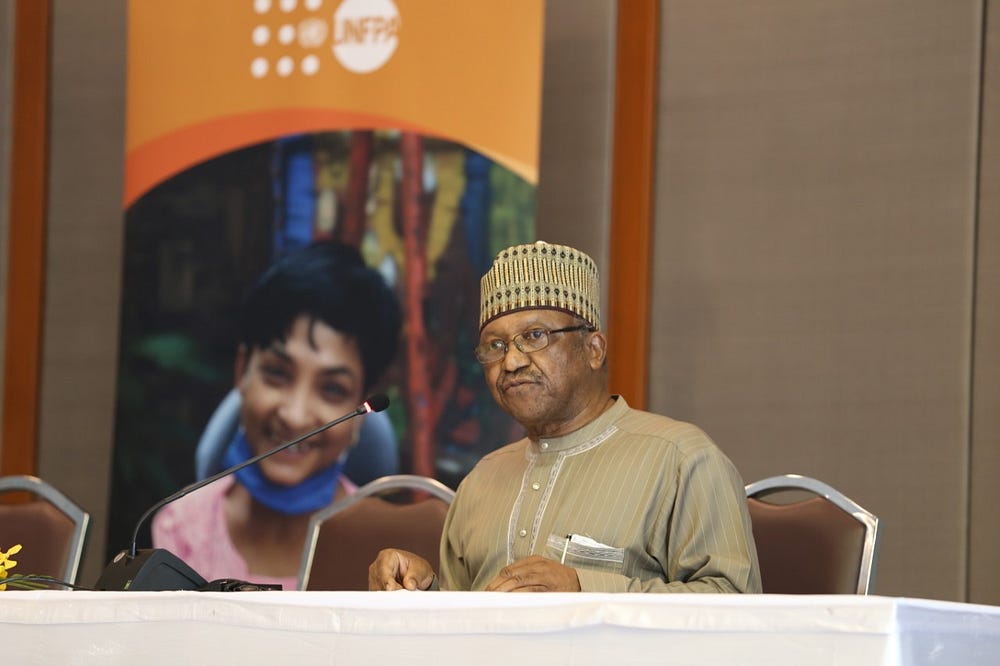
To ensure the commitments don’t just end as statements, Dr Dube mentioned that FP2030 has various accountability frameworks which can be used to track them. But it all starts with how the commitments are generated in the first place, she added. “We encourage countries to utilise a focal point structure, with civil society, youth, government and donor organisations involved.” These commitments are then operationalised using costed implementation plans to move the visions into action, and finally, “we work to ensure data visibility of every country through the Performance Monitoring for Action which helps the countries continuously monitor progress,” Dube added, emphasising that all these processes help entrench accountability in advancing family planning and reproductive health interventions.
From funding to financing
Attaining these commitments at the country level will require a mental shift from ‘funding’ which is mostly external to ‘financing’, through internal domestic resource mobilisation, agreed experts at the conference.
Dr. Jérémie Zoungrana, Nigeria Country Director, Bill & Melinda Gates Foundation, said the role of parliamentarians to safeguard and advocate for family planning and women’s health programmes is more critical than ever as donor funds continue to shrink. He said this while moderating a discussion on generating political leadership in family planning, and this enabled participants to share cross-regional perspectives on the challenges faced with allocations for family planning funding.
However, tools that provide data on the implications of family planning investments will make the work of legislators and advocates easier. The family planning investment impact calculator launched by the Guttmacher Institute showed the estimated impact of family planning investments on the number of couples receiving modern contraceptive care, unintended pregnancies and unsafe abortions averted. The tool also showed unplanned births averted and the number of women and girls’ lives saved from family planning investments. As an example, the NGN 20.76 million included in the proposed 2023 Federal Ministry of Health budget has the potential to avert 999 unintended pregnancies, among other benefits. Such tools allow advocates to define what their advocacy messages are as they push for domestic financing for family planning, said Dr Elizabeth Sully, a senior research scientist at the institute. Most of all, it is also a tool that the government can use to show the impact of their family planning investments, she added.
Balancing family planning conversations
As these conversations continue, it is important to also take them where they matter most — where the issues are most relevant. The concept of power-shifting which ensures that decisions around these issues are devolved is now at the core of the operation of some global health bodies. FP2030 is already adopting this by setting up regional hubs to ensure the family planning agenda is community-driven and country-led.
The youth-led global roadmap for action launched at the conference is a good example of communities coming together to define their priorities and letting stakeholders know what matters most to them.
Alan Jarandilla Nuñez, Executive Director, International Youth Alliance for Family Planning (IYAFP), said the roadmap is the first youth-led agenda-setting exercise. With it, young people are setting the priorities regarding adolescents and youth sexual reproductive health rights and justice with the aim to achieve an ambitious vision by 2030 that includes progressive policies, sustainable funding and meaningful youth engagement and partnerships.
More than just population control
The family planning conference took place as the world population was estimated to have reached 8 Billion, so there were deliberations around the demographic impacts of unchecked population growth. While experts believe the number is a sign of strength and progress, it’s important to ensure family planning and reproductive health services are delivered from a rights-based perspective. This is because family planning is beyond population control, said Lucky Palmer, Country Director, Ipas Nigeria. “It is about the woman, and the quality of life she can live. It is also about empowering her with early, correct, and consistent information to make informed choices about her reproductive health. But importantly, family planning is about how these choices impact her health and her ability to meaningfully contribute to the development of her family and community,” he added.
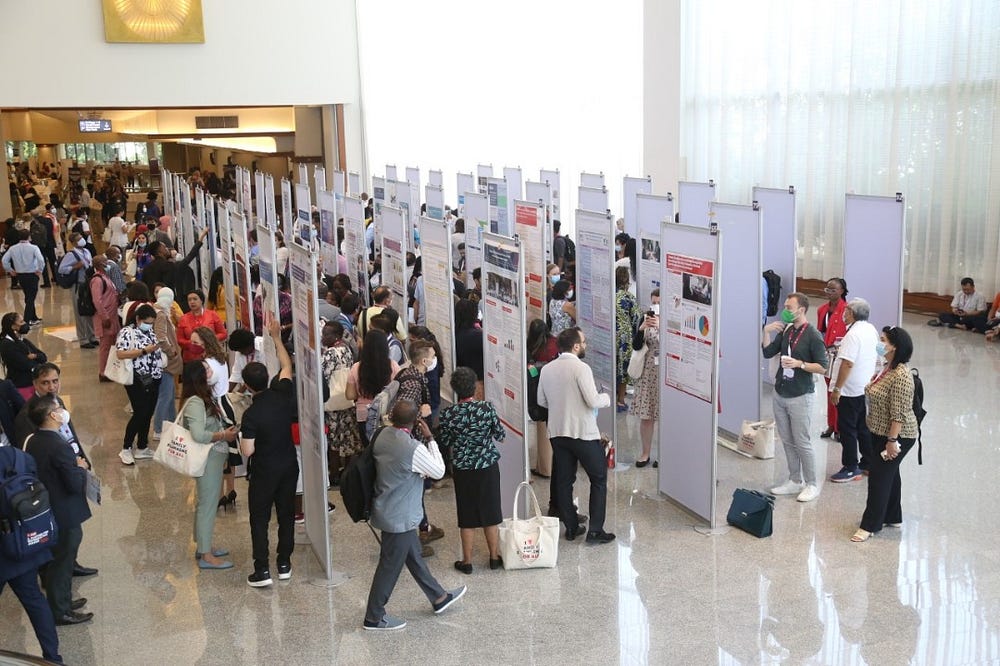
Men as change agents
Men are also crucial for driving the family planning agenda even though most messaging and services is often targeted at women. Action points from the Nigeria Health Watch 2018 policy dialogue themed, “The Elephant in the Room — Men as Change Agents in the Family Planning Discourse” which encouraged men to take their place as family planning change agents for a healthier Nigeria, are still very much valid.
While transiting through Istanbul on my return home, a passenger heading to the Netherlands asked me what family planning means. Responding to him made me realise that as long as knowledge gaps still exist, these global convenings remain important to not only expand knowledge but to build and sustain partnerships to drive sustainable change in the push for improved access to family planning services and commodities.


